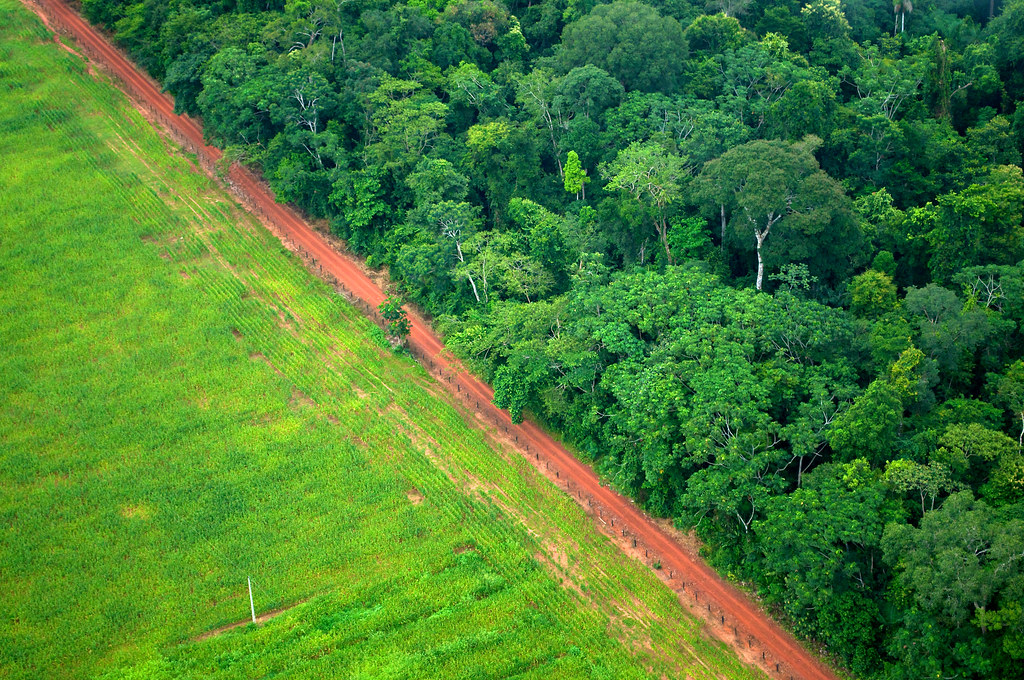巴西環境部長菲略(Jose Sarney Filho)和農業部長麥吉(Blairo Maggi)在第13屆坎昆聯合國生物多樣性大會(COP13)做出「大量減排」承諾,宣誓復育2200萬公頃退化土地,並在這些土地上推廣永續農業。
2200萬公頃幾乎等於一個烏拉圭國土面積,是史上單一國家最大規模的土地復育承諾。
聯合國世界糧農組織(FAO)今年稍早指出,在整個南美洲,有超過68%的土地退化——高達1億公頃的土地因森林砍伐而劣化,7000萬公頃土地過度放牧。
巴西官員承諾在2030年前,透過復育森林、造林和自然再生等方式恢復1200萬公頃經砍伐、退化的林地,在500萬公頃土地上實施低碳農業計畫,整合作物、畜牧和森林管理,並在2020年前復育500萬公頃的退化牧地,總復育面積達2200萬公頃。
這2200萬公頃使拉美與加勒比海國家在20×20倡議中承諾復育的面積增加一倍。
兩位部長皆表示,此舉能提升水資源與糧食安全在國策中的優先順序。
推動巴西土地復育的華盛頓智庫世界資源研究所(WRI)肯定巴西政府的承諾。WRI總監畢德曼(Rachel Biderman)表示,復育2200萬公頃土地將能吸收大量的溫室氣體,產生乾淨充足的水資源,並提升農業生產力。
「這對巴西人民來說是空前的好消息。復育能讓產能低落的土地恢復活力,人們會獲得新的工作機會和經濟成長。」畢德曼說。
其中1200萬公頃復育林地能帶來林業經濟成長,有助生物多樣性提升和水資源管理。另外500萬公頃整合作物、畜牧和森林管理的土地將提升農業生產力並減少碳排放。剩下的500萬公頃復育牧地將提升牧場與畜牧業生產力及永續性。
世界自然保育聯盟(IUCN)土地復育知識資深經理卡爾蒙(Miguel Calmon)指出:「巴西的復育承諾是其他國家的成功典範。由環境部和農業部合作的模式為農民、畜牧業者和保育者創造三贏的局面。」
如能實踐這個承諾,巴西將可累積卡爾蒙所稱之「大減排」,有助達成巴西在巴黎氣候協定的自主減碳承諾。
此外,巴西也將透過「波昂挑戰」(Bonn Challenge)和「紐約森林宣言」(New York Declaration on Forests)獲得國際社會的支持。波昂挑戰參與國家承諾在2020年前復育1億5000萬公頃砍伐林地與退化土地,紐約森林宣言則承諾在2030年前復育3億5000萬公頃土地。
In a move that aligns the interests of conservationists, farmers and ranchers, Brazil’s Ministries of Agriculture and the Environment have pledged to jointly restore and promote sustainable agriculture across 22 million hectares of degraded land. Covering an area the size of Uruguay, this is the largest restoration commitment ever made by a single nation.
Environment Minister Jose Sarney Filho and Blairo Maggi, minister of agriculture, livestock and food supply, announced these plans at the 13th Conference of the Parties on Biological Diversity, COP13, underway in Cancún through December 17, as part of the UN Conference on Biodiversity.
The Brazilian officials promised to restore 12 million hectares of deforested and degraded forest land by 2030 through forest restoration, reforestation and natural regeneration.
The government will implement five million hectares of integrated crop, livestock and forest management by 2030 through Brazil’s low-carbon agriculture program.
In addition, the government said it aims to restore five million hectares of degraded pasture land by 2020, for a total of roughly 22 million hectares that will be restored.
The commitment results in doubling of the hectares committed to Initiative 20×20, a country-led effort to restore 20 million hectares of degraded areas in Latin America and the Caribbean by 2020.
Both ministers say the initiatives reinforce national priorities in the areas of water and food security
The World Resources Institute, WRI, headquartered in Washington, DC, has worked to bring about land restoration in Brazil.
Rachel Biderman, director of WRI Brasil, praised the government, saying,
“Restoring 22 million hectares – an area larger than Uruguay – will absorb huge amounts of greenhouse gas emissions, generate clean and plentiful water and boost agricultural productivity,” Biderman said.
“It is first and foremost a win for the Brazilian people,” she said. “They “will benefit from new jobs and increased economic growth as restoration brings vitality back to under-performing landscapes.”
Brazil’s restoration of 12 million hectares of forest landscapes will deliver economic benefits from forestry as well as promoting biodiversity and water management. The commitment of five million hectares of integrated crop, livestock and forest management will boost agricultural productivity while reducing emissions.
Brazil’s ranchers and cattle industry will also benefit from increased productivity and sustainability through five million hectares of pasture land restoration.
Miguel Calmon, the IUCN’s Senior Manager for Landscape Restoration Knowledge, explained, “Brazil’s restoration commitment represents a model of success for other nations. The commitment is made jointly by the Ministries of Agriculture and Environment, which aligns the interests of farmers, ranchers and conservationists.”
The commitment provides a way for Brazil to accrue what Calmon called “huge emissions savings” for the country’s Nationally Determined Contribution to the Paris Climate Agreement.
Brazil will enjoy the support of the international community with this contribution to the Bonn Challenge and New York Declaration on Forests – partnerships that aim to restore 150 million hectares of deforested and degraded land by 2020 and 350 million hectares by 2030.
※ 全文及圖片詳見:ENS









